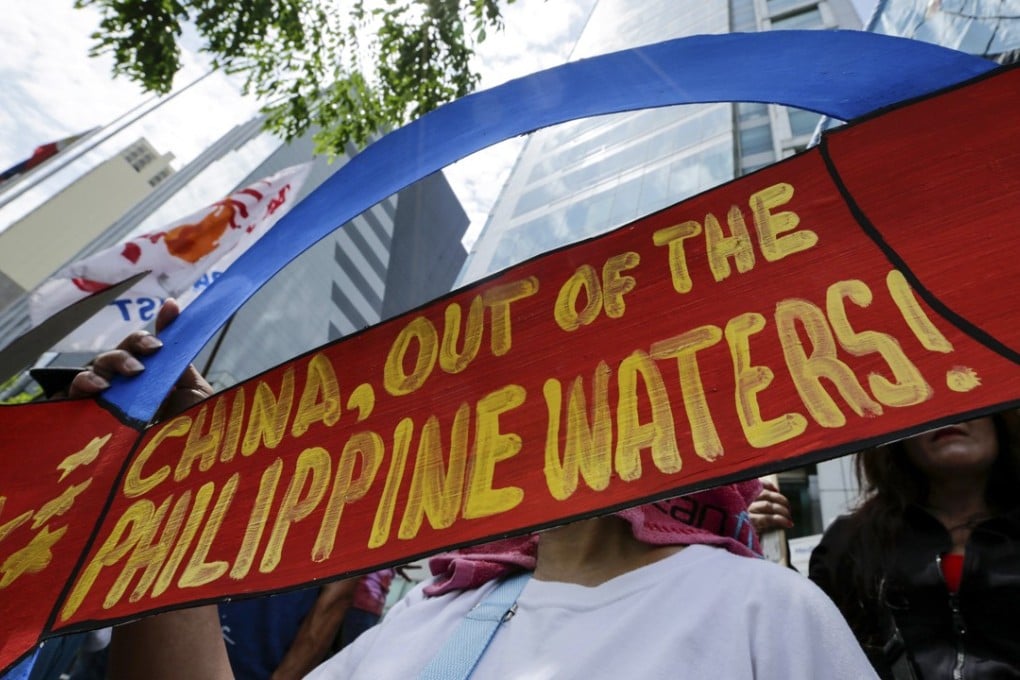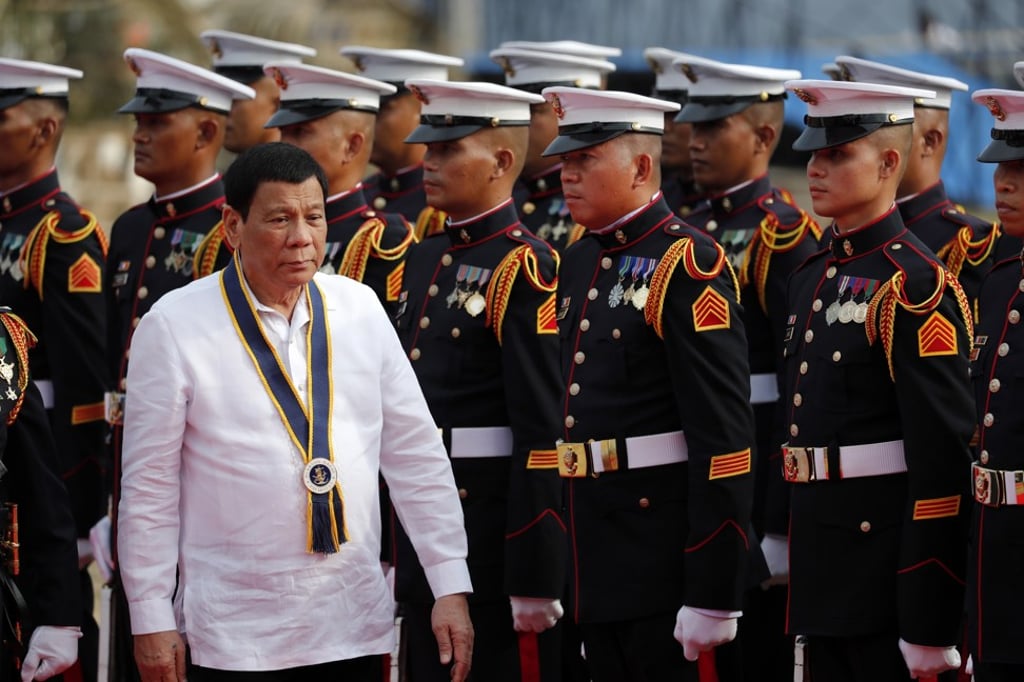Manila’s tough talk on South China Sea aimed at easing fears at home, analysts say
Domestic pressure has ramped up on Rodrigo Duterte administration to take a stronger line on Beijing, according to observers

Ties between Beijing and Manila may be under pressure from China’s growing assertiveness in the contested South China Sea, after the Philippine president’s top aides warned against crossing the country’s “red lines” in the resource-rich waterway.
While the harsh words this week deviated from the Rodrigo Duterte administration’s friendlier line, analysts say domestic political pressure has pushed Manila to be less cosy with Beijing, even if military conflict over the disputed waters remains unlikely.
Philippine national security adviser Hermogenes Esperon said on Wednesday that Duterte would be willing to use force if the country’s soldiers were hurt in the South China Sea, including at Pagasa, or Thitu – one of the largest islands of the Spratly chain, which both China and the Philippines claim.
“Just the other night, the president said if my troops are hurt there, that could be my red line,” Esperon told reporters. “We are not saying we are going to war, but if they oppress us, that may force our hand because we will not allow ourselves to be oppressed.”
Philippines ‘rebuilding runway on South China Sea island’

China’s claims to more than 90 per cent of the South China Sea, which overlap with several of its neighbours’, have long been a point of regional contention. In recent months, militarisation of its man-made islands in the waterway has expanded, along with its deployment of surface-to-air and anti-ship cruise missiles, radar jamming equipment and long-range bombers, sparking concerns across the region.
China will send team to minimise conflict at security talks
For the Philippines, while relations with China have improved with a foreign policy approach that prioritises economic cooperation and downplays Beijing’s territorial assertiveness – Duterte has even quipped that Beijing should make the Philippines a Chinese province – domestic pressure has ramped up on Manila to take a tougher line, observers say.